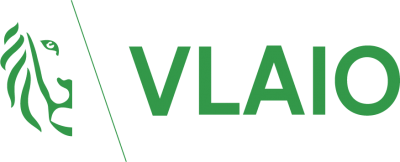Topics
We organise our actions in six thematic & strategic agendas:
Strategic Agendas:
Bio-economy
Circular Construction
Chemicals/Plastics
Manufacturing Industry
Food Chain
Water Cycles
Seven leverages provide additional support:
Leverage effects:
Lever Policy Instruments
Lever Circular Procurement
Lever Communication
Lever Innovation & Entrepreneurship
Lever Financing
Lever Jobs & Skills
Lever Research
What, why and how?
Why are we pursuing a circular economy?
Future visions 2050
How do we see our circular future?
About our management
Who steers what at Flanders Circular?
On the way to a circular digital meter
Eandis replaces old electricity and gas meters with circular versions
Fluvius is an operator of distribution networks and offers network solutions for electricity and natural gas, heat, sewerage, cable and public lighting throughout Flanders.
As a result of the Flemish Government's decision to install digital meters everywhere from 2019 onwards, we are gradually being confronted with a growing number of used, electronic meters that are being returned to the grid.
With this project, we wanted to investigate how we could reduce our ecological footprint by (partially) recycling or reusing these digital meters in a socially responsible way. We wanted to find out whether we could recycle the meters in their original function. We also carried out a cost-benefit analysis to determine whether it would be worthwhile dismantling the meters to reuse certain parts or recycle raw materials. We wanted to use custom companies for the dismantling work in order to promote community involvement. We also looked at whether we could minimise the transport of the end-of-life appliances and whether we could impose certain requirements on our suppliers in the future.
For this study, we processed a total of 17,752 electronic meters in cooperation with custom companies. We then had the recovered materials recycled by specialised waste processing companies.
Eandis System Operator
Sectors
Themes
Organisations
Website
MOST IMPORTANT
RESULTS
- The smart meters in question cannot be reused in their original function because of the regulations surrounding security, cyber security and privacy.
- The cost-benefit analysis shows that for the smart meters in this pilot project, the purely economic end balance is not cost-effective: an average cost of about EUR 1 each.
- Removing plastics and electronics and having them recycled by a specialised firm can be worthwhile, but for this, the meters must be easier to dismantle and we must be able to offer the parts in larger volumes to the waste processor.
- With this project, we created employment in our own region for specific target groups (customised companies). The nature of the work also ensured high job satisfaction among the employees involved.
MOST IMPORTANT
LESSONS LEARNED
- It is clear that our meters are not designed with disassembly in mind. A good product sheet from the supplier, stating, among other things, dismantling instructions, available residual fractions, presence of hazardous substances, etc., can already help.
- Ideally, the digital meter should be designed in such a way that we can dismantle it on site and sort the parts immediately (electronics/print plates, batteries, metals and plastics). This would lead to a fast, cheap and clear separation of the residual fractions and would also solve problems relating to privacy.
- The cooperation with custom companies goes smoothly, provided that good agreements are made about the assignment and planning. Because their capacity is less flexible in the short term, we would cooperate with several companies spread across Flanders. Given our own spread in Flanders, we also avoid long transports.
- The material that we process through custom firms is considered a waste flow by the VLAREMA legislation. (VLAREMA is a Flemish regulation on the sustainable management of material cycles and waste materials.) As a result, these companies have to meet a number of imposed conditions. Since they are less active in the waste sector, this is not always fully the case. If necessary, we therefore still have to go through permit procedures.
WHAT DOES
THE FUTURE HOLD?
For Fluvius, the development of this project was a very instructive journey into uncharted territory. We have gained many new insights about waste streams and cooperating with customised companies. We are currently examining various proposals to reuse or dismantle other discarded materials as well. For example, we will replace a whole number of meter box covers when we install the new digital meters. Together with KU Leuven, we are investigating whether we can reuse these old covers as primary materials in production.
We also learned that for such cases involving the processing of materials, we must impose a number of legal and necessary conditions on the custom companies we work with. For this, we still need to eliminate a number of ambiguities and shortcomings. We hope to eventually draw up a kind of general canvas or document, with the necessary advice from external environmental experts and the OVAM.
Fluvius also wants to set up a Sustainability Purchasing Competence Centre within the purchasing department. The aim of this competence centre is to train purchasers on all aspects of sustainability and corporate social responsibility, so that they can make the right, sustainable choices in their purchasing dossiers and apply licensing criteria.
Finally, Fluvius believes that this project has not only increased its own insights into the possibilities of the circular economy, but can also give authorities, partners and suppliers an impetus for concrete realisation. Our findings and concrete results were documented and we are making them available to third parties facing similar circumstances.
















